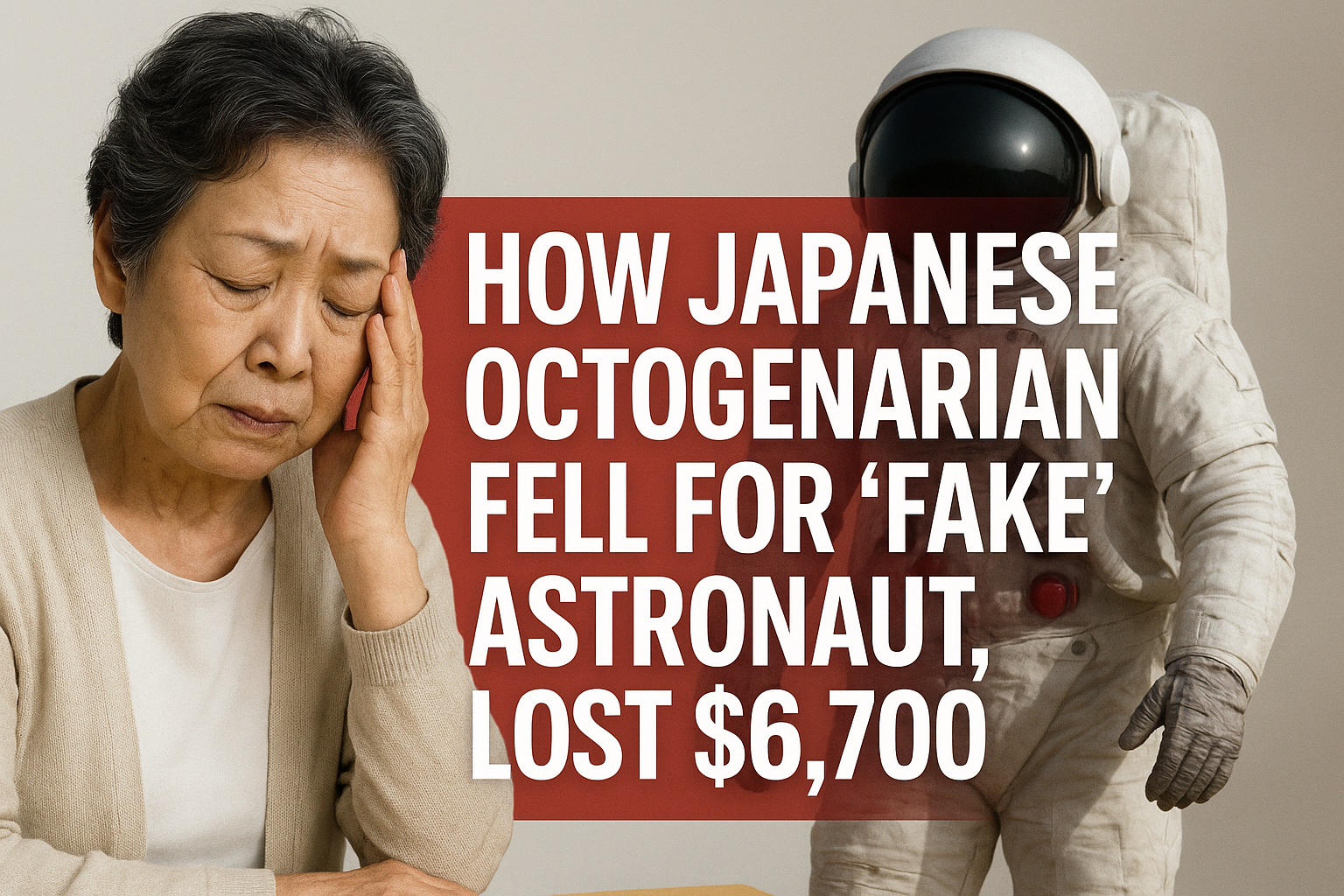
In a startling case of online fraud, a Japanese woman in her eighties fell victim to a romance scam and lost 6,700 dollars to a fraudster who claimed to be an astronaut. The incident highlights how vulnerable elderly people can become when targeted by criminals who exploit loneliness and emotional dependence.
The woman, who lives in Japan’s northern Hokkaido region, reportedly met the fraudster in July through social media. The scammer introduced himself as a male astronaut. As their conversations grew, the woman started developing feelings for him, unaware that she was being drawn into a trap.
According to police, the fraudster cleverly built a story that appealed both to her emotions and her sense of compassion. At one point, he claimed that he was currently in space aboard a spaceship. He told her he was under attack and running out of oxygen. The scammer then pressured her to send money online to help him buy oxygen, insisting that his life depended on her support.
The woman, emotionally invested by then, believed the story and transferred around 1 million yen, which amounts to about 6,700 dollars. By the time she realized she had been deceived, the money was gone. Police described the case as a “romance scam,” a type of fraud that has become alarmingly common in recent years, particularly among older populations.
Japan faces unique challenges in this area. It has the second-oldest population in the world after Monaco, according to the World Bank. With millions of elderly people living alone, scammers find easy targets by preying on their emotional vulnerabilities. Many seniors long for companionship, and fraudsters exploit this need by creating fake identities, building trust, and then fabricating emergencies that require money.
Authorities in Japan warn that such cases are not isolated. Similar scams have been carried out in different forms, including the classic “it’s me” scam. In that method, criminals impersonate a relative in trouble and beg for money, playing on the natural instincts of family members to protect their loved ones. Other scams involve tricking seniors into using ATMs to transfer funds or to obtain refunds for non-existent insurance premiums and pensions.
Local officials urge people to be cautious whenever they receive suspicious messages online. “If a person you met on social media ever demanded cash from you, please be suspicious of the possibility of scam, and report to the police,” one officer told AFP.
This case also reflects the larger global trend of romance scams, where fraudsters use social media and messaging platforms to lure victims. By pretending to be soldiers, doctors, or even astronauts, scammers create a sense of urgency and trust that makes it harder for victims to doubt their intentions.
For the Japanese octogenarian, the experience has been a painful lesson. Her loss serves as a reminder of the importance of educating elderly people about online dangers. Families, communities, and governments all need to step up efforts to protect the elderly from the growing menace of organized online fraud.

















.jpeg)


